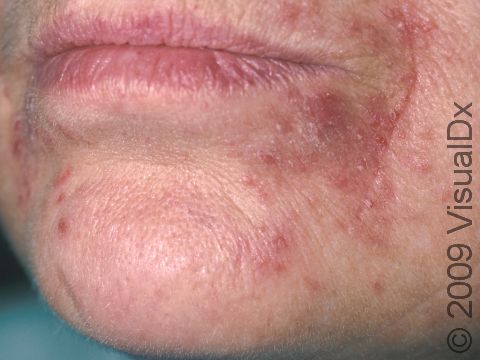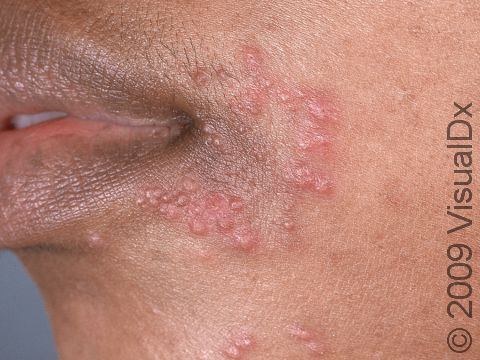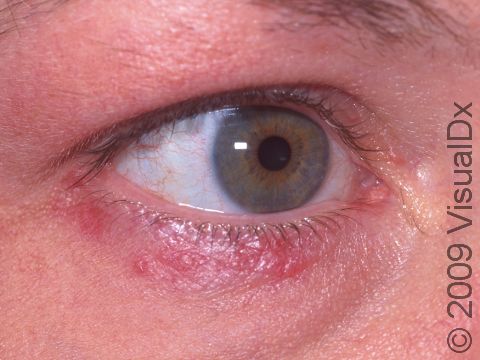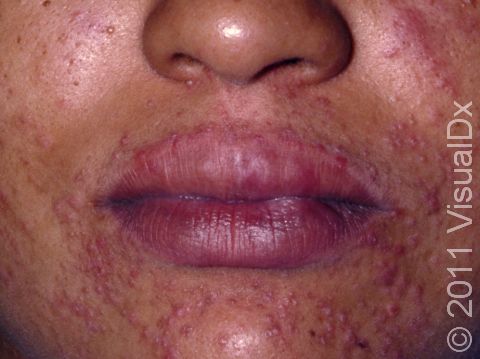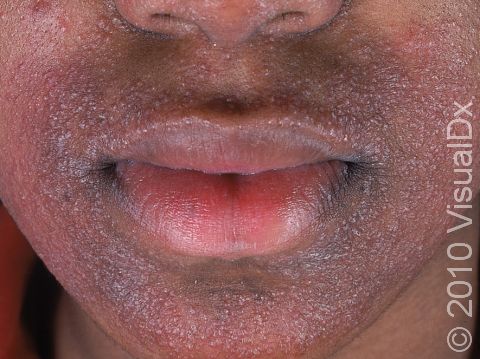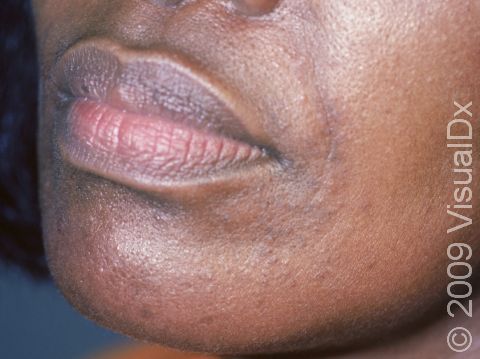Periorificial Dermatitis
Periorificial dermatitis is an acne-like condition that typically occurs around the mouth, nose, and/or eyes. Some possible causes are the use of topical corticosteroid creams, certain cosmetic products, oral contraceptives, and fluoride and antitartar ingredients in dental products. Periorificial dermatitis also tends to occur in people prone to eczema.
Who's At Risk?
Periorificial dermatitis is usually seen in women aged 18-40 years, but men can be affected as well. In children, this condition is called periorificial dermatitis of childhood.
Signs & Symptoms
Tiny papules (solid bumps) or pustules (pus-filled bumps) appear around the mouth, often with a clear area between the lip and the rash. The bumps may also occur near the eyes and nose. There may be dry, flaky skin in these areas. In lighter skin colors, the rash may appear pink or red. In darker skin colors, the redness may be harder to see, or it may appear purple or brown. The lesions may burn or itch or have no symptoms at all.
Self-Care Guidelines
- Stop using all face creams, lotions, cosmetics, and sunscreens.
- Stop using dental products with fluoride and antitartar ingredients.
- Wash with warm water alone until the rash improves, and then use a gentle cleanser such as Dove, CeraVe, or Cetaphil to clean your face.
- If you have been applying a steroid-containing product, this will need to be stopped. However, if it has been used for a long time, stopping use may cause the periorificial dermatitis to get worse for a period before improving.
Treatments
- Topical antibiotic gels, creams, solutions, or lotions (eg, metronidazole, clindamycin, azelaic acid, pimecrolimus, or erythromycin).
- Oral antibiotics, such as doxycycline.
Visit Urgency
If these self-care measures are not helping after a couple of weeks or if the condition gets worse, seek medical advice.
Trusted Links
References
Bolognia J, Schaffer JV, Cerroni L. Dermatology. 4th ed. Philadelphia, PA: Elsevier; 2018.
James WD, Elston D, Treat JR, Rosenbach MA. Andrew’s Diseases of the Skin. 13th ed. Philadelphia, PA: Elsevier; 2019.
Kang S, Amagai M, Bruckner AL, et al. Fitzpatrick’s Dermatology. 9th ed. New York, NY: McGraw-Hill Education; 2019.
Last modified on August 6th, 2025 at 3:55 pm
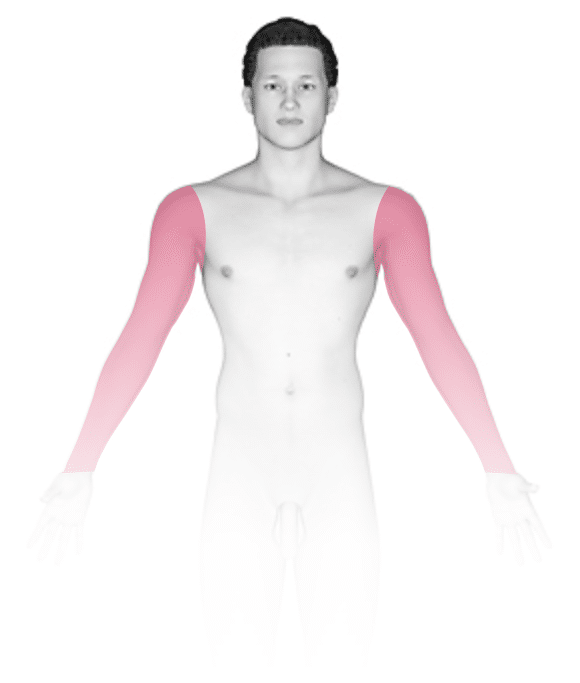
Not sure what to look for?
Try our new Rash and Skin Condition Finder
